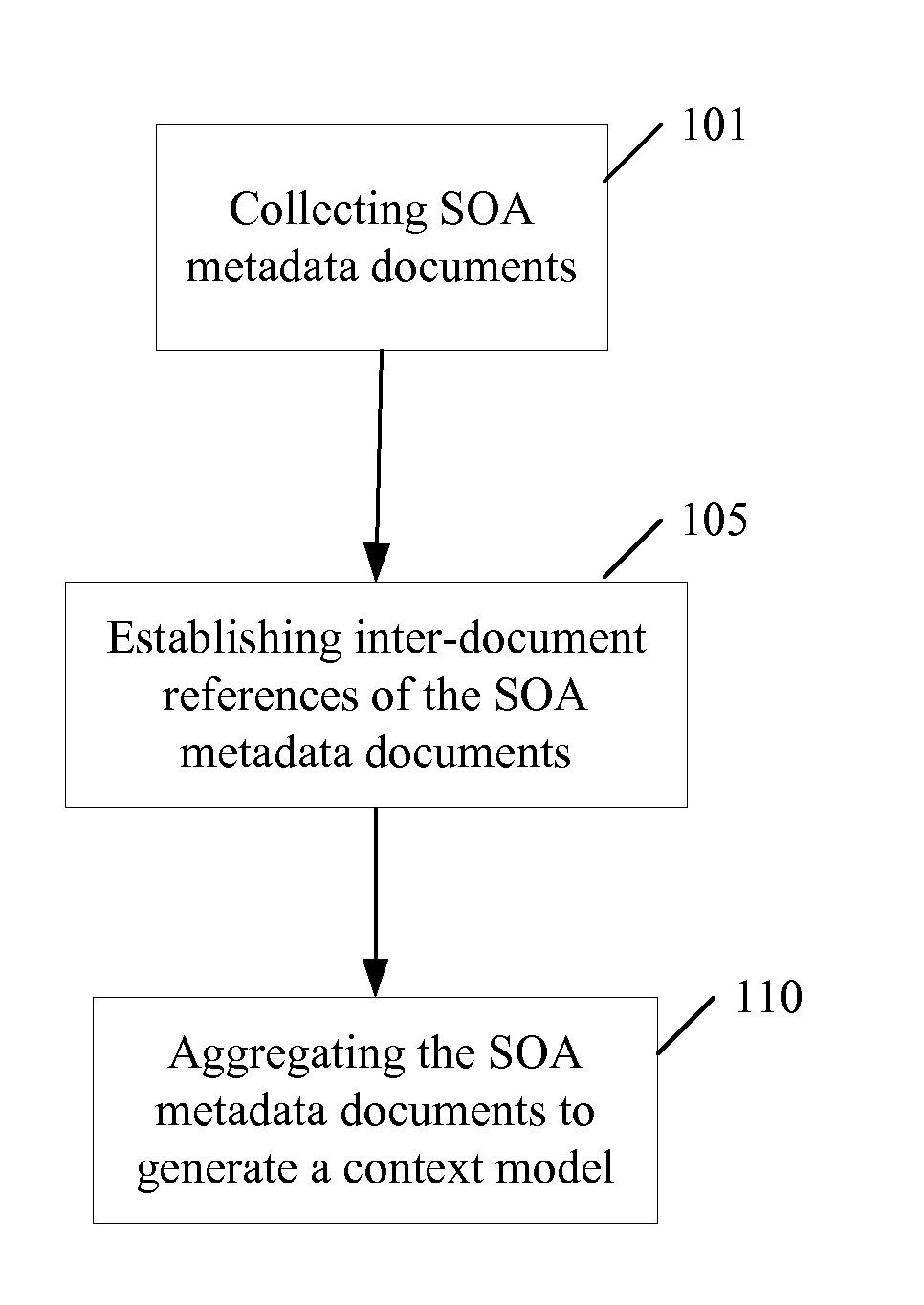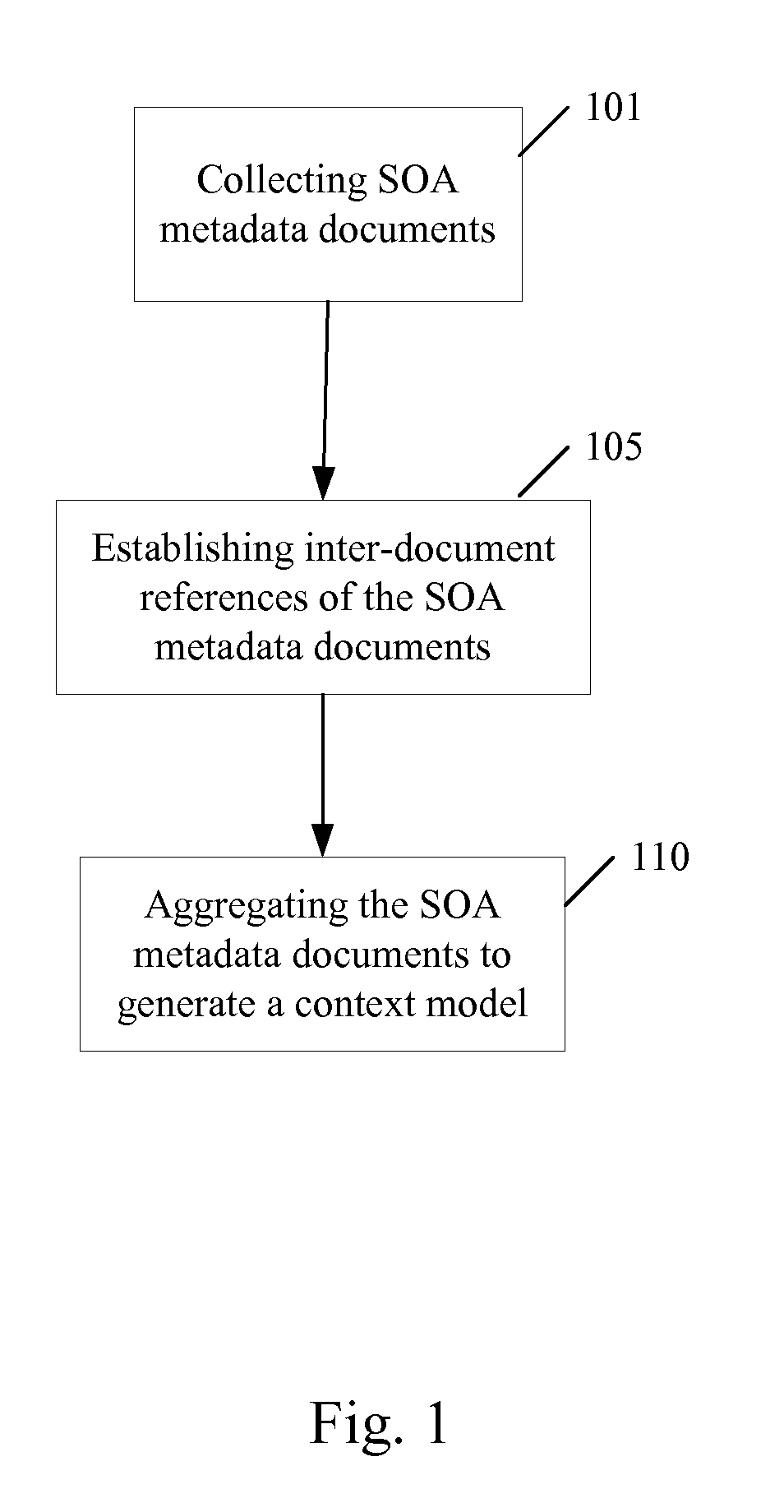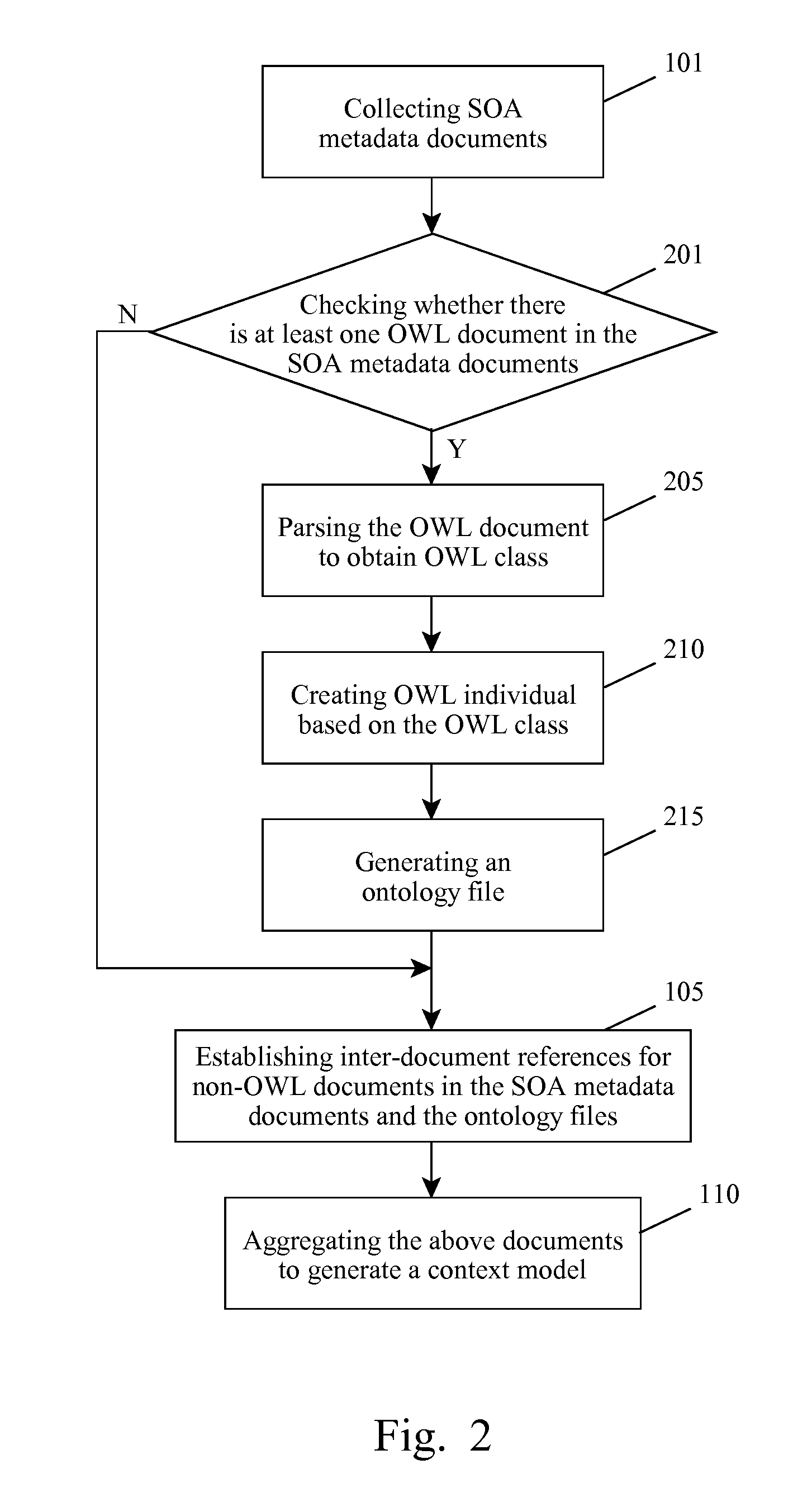Generating a service-oriented architecture policy based on a context model
a policy and context model technology, applied in the field of service-oriented architecture of computer network systems, can solve the problems of loss of flexibility of declarative policies, complex use of business policies/rule definition tools, and inability to perform the transformation between different levels without losing semantics and integrity, etc., to achieve the effect of improving usability of policy generation, enhancing the ability to describe policy behavior, and maintaining flexibility
- Summary
- Abstract
- Description
- Claims
- Application Information
AI Technical Summary
Benefits of technology
Problems solved by technology
Method used
Image
Examples
Embodiment Construction
[0049]It is believed that the above and other objectives, features and advantages of the present invention will become clearer through the following detailed description of the embodiments of the present invention in conjunction with the drawings.
[0050]FIG. 1 is a flowchart of a method of generating a context model for generating a SOA policy according to one embodiment of the present invention. This embodiment will be described in detail in conjunction with the figure.
[0051]As shown in FIG. 1, at Step 101, SOA metadata documents compliant with an application scope of the SOA policy are collected. As stated above, the SOA metadata documents include service metadata documents, runtime information documents or documents for describing other business contents, such as OWL documents. In this embodiment, the application scope of the policy is the domains to which the policy will be applied. The detailed content will be described later. According to the application scope of the SOA policy...
PUM
 Login to View More
Login to View More Abstract
Description
Claims
Application Information
 Login to View More
Login to View More - R&D
- Intellectual Property
- Life Sciences
- Materials
- Tech Scout
- Unparalleled Data Quality
- Higher Quality Content
- 60% Fewer Hallucinations
Browse by: Latest US Patents, China's latest patents, Technical Efficacy Thesaurus, Application Domain, Technology Topic, Popular Technical Reports.
© 2025 PatSnap. All rights reserved.Legal|Privacy policy|Modern Slavery Act Transparency Statement|Sitemap|About US| Contact US: help@patsnap.com



